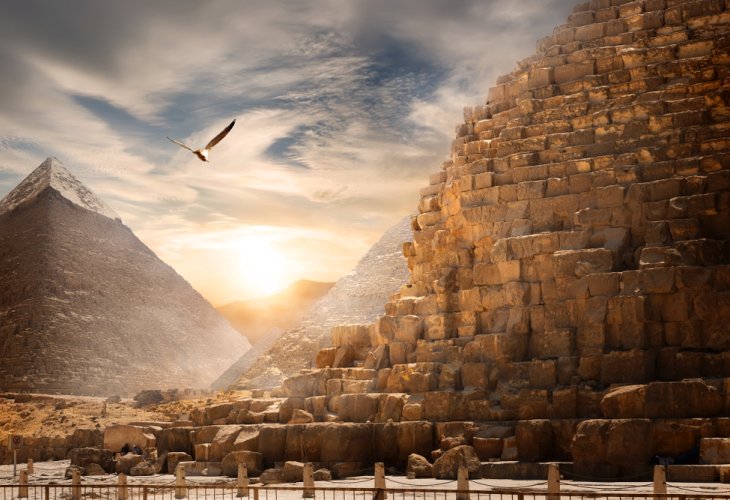The Journey to Sacred Sites: Exploring an Ancient Tradition
Traveling to sacred sites during festivals required early departures, especially given the harsh winter conditions. Consequently, most journeys took place from Passover to Shavuot.
 (Photo: shutterstock)
(Photo: shutterstock)Ever since the Jewish people were exiled from their land, they longed to return and live there, but various foreign conquerors made this impossible. Life in the land was notably harsh, particularly for Jews. Over time, a tradition developed of making pilgrimage to the holy places: Jews from surrounding countries would visit these sacred sites in Israel, even if only briefly. This custom was known as "Ziyara."
In 1267, the Ramban wrote: "Many come to Jerusalem regularly, men and women from Damascus, and from Zobah, and all across the land to see the Temple and to weep over it."
Around fifty years later, in 1315, Rabbi Estori HaParchi, author of "Kaftor VaFerach," noted: "We join our fellow Jews residing in the land like those from the city of Tripoli in Syria, Hamath, Damascus, Zobah, Egypt, and Alexandria in traveling to Jerusalem during holidays and festivals."
To make these journeys during the holidays, travelers needed to embark well in advance, of course. The winter months made travel difficult, so most pilgrimages occurred between Passover and Shavuot. Some would come for Passover, others for Shavuot, and some would stay for extended periods, even encompassing both holidays.
Pilgrims heading to central Israel traveled to Jerusalem. In the north, they would visit the tombs of Hillel and Shammai in Meron. An anonymous traveler from the 14th century describes: "In Meron, there is a cave for Shammai and Hillel... there, all Jews and Ishmaelites gather on the second Passover, and the Jews pray there and recite psalms. When they see water flowing from the cave, everyone rejoices for it is a sign of a blessed year."
Apparently, these pilgrims preferred to celebrate Passover at home, choosing instead to visit a sacred site on the second Passover.
The next stop on the Ziyara journey was the tomb of the prophet Samuel. Two weeks after the second Passover, on the 28th of Iyar, thousands would arrive from Egypt, Syria, Babylon, and from across Israel. They would camp in tents for a few days and then proceed to Jerusalem for Shavuot, celebrating at the Western Wall.
Rashbatz wrote: "There is evidence and proof that the sanctity of the Temple and the city endure, as there are still pilgrims coming from Egypt and other countries, and this is hinted at in the Midrash Kinnah... they say that some of the miracles that happened in Jerusalem still remain because in the synagogue they require the local people year-round, and it fills up full to full during Shavuot with more than three hundred people there comfortably, for it retains its sanctity, and this is a sign of redemption."
The tomb of the prophet Samuel was one of the holy sites in Israel, and documents from the Cairo Geniza show a tradition of swearing by the name of Samuel's tomb. Around the site of the tomb, a "hekdash," a study hall with nearby lodgings, was established to enable scholars to study continuously, supported by donations from the pilgrims. This hekdash operated as early as the 14th century and was managed by the leaders of Jerusalem. A similar hekdash was established in Meron around the same time.
Today, traveling to holy graves is quick, allowing people to visit these sites whenever they feel the need to pay respects to their ancestors, but on certain days, crowds still gather at the saints' graves and holy places, a nod to the ancient tradition of Ziyara.

